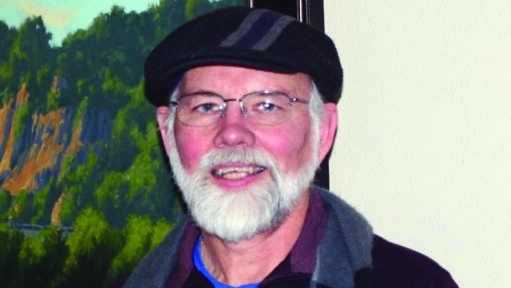Thermostats and norms
Building Community
Thermostats and norms
No one had touched the thermostat, but within minutes of his beginning to speak one could literally feel the chill in the room. He came to the meeting with what one might fairly assume were good intentions. He began by offering praise for the work we were doing, how needed it is and what an excellent job we had been doing. The praise was followed by a constructive critique of how we might even do better.
The lowering of the temperature had little to do with the content of his words, but everything to do with how they were spoken. The people to whom he was speaking had developed what the group considered to be appropriate norms or guidelines for their time together. Among those norms is a recognition that some of us who are accustomed to having our voices heard (those of us who are white and male), need to work harder at listening, and those who are often silenced are encouraged to speak up. This was his first meeting and, as a white male, he had assumed the privilege of sharing his insights without first taking the time to listen and discover the needs, desires and aspirations of our diverse group. He meant well. It came off as arrogant. More importantly, it broke a major norm around which the group was creating its life together.
Norms are the spoken or unspoken practices that form the infrastructure for our common life. They exist in our homes, our places of work, our communities and our nation’s capital. Norms help us navigate our lives together so we have a mutual understanding of what we might expect from one another. In a family, a norm might be that we share our evening meal together. Breakfast is eaten when you arise. Lunch can happen midday as you are hungry. But when it comes to dinner, or supper as we called it on the farm, we sit down together, catch up on our day and share a meal. This is a norm, and those living by it know what to expect from one another. It helps bind us together.
For the past four years, the person in the Oval Office has operated with great indifference to the norms of the presidency and the country, awakening us to the value of traditions like accepting the consequences of elections as those norms fall away. His norm-shattering has come at considerable cost to the cohesion of the nation and a shared sense of unity and purpose.
Yet as many fight righteously to uphold certain democratic norms that our outgoing president threatened, prominent thinkers have drawn attention to the dangers of other norms. Norms indeed build family, community and national cohesion, but the nature and character of that cohesion can be just or unjust, caring or indifferent, inclusive or exclusive. It can, for example, be a norm in a family that “Father knows best” and therefore always has the last word. In his newest book, Long Time Coming: Reckoning with Race in America, author Michael Eric Dyson writes, “The rules of the white world are communicated through cultural habits and social norms that reinforce Black fear and carry a message that cannot be missed: white spaces are sacred and not to be invaded or tarnished.” It is a norm that gives whites authorization to let Black people, Indigenous people and those of color know they are unwelcome in spaces to which whites lay claim. For years these norms were spoken, even written into covenants that preserved segregation. Now those same norms are mostly unspoken but reinforced in ways that are both subtle and at times violent.
It is invariably better when norms are named and spoken, for if they are worthwhile, they can be defended and upheld. A community governing board might have an unspoken norm that gives permission to one or two individuals to dominate all decision making. But if that same board is asked to identify the norms by which it wishes to actually live, it is unlikely it would include a norm that gives privilege to one or two voices, while silencing others.
Because norms are intended to shape and form our common life, it is always best if they are challenged by those who oppose them, rather than simply ignored or discarded as if they have no relevance. Interrogated with openness, a norm about male dominance can give way to a norm of mutuality. A norm that privileges whites can give way to a norm that seeks to undo the damage done by that privilege. Norms are the thermostats that help regulate the environment in which we live. To be sure, from time to time they need adjusting. But on this there can be no question: norms are essential for healthy families, strong communities and a thriving nation.
Tim Johnson in a retired pastor of the United Church of Christ.



